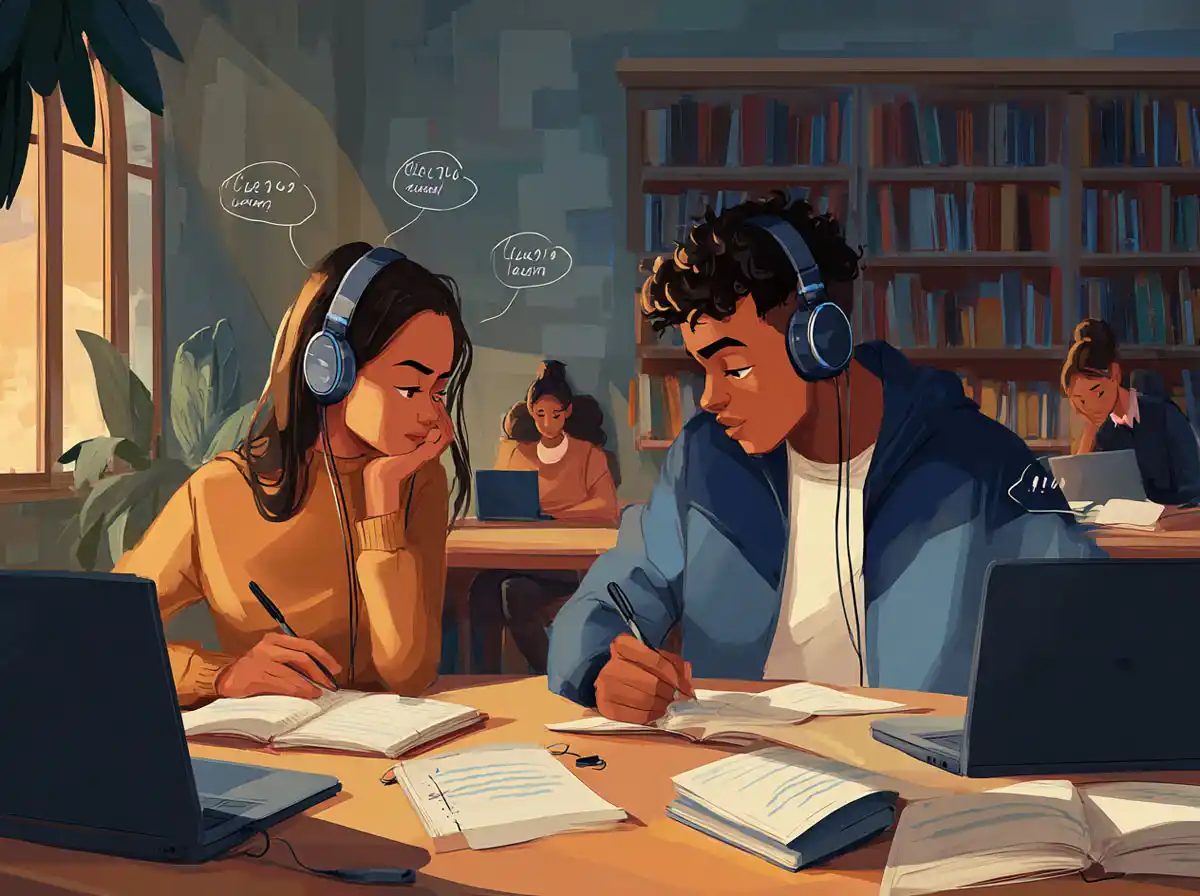Learning a new language can be an enriching experience for children, opening doors to new cultures and perspectives. Romanian, a Romance language spoken by over 24 million people, is a great choice for children to learn. The language has Latin roots and shares similarities with Italian, Spanish, French, and Portuguese, making it a stepping stone to mastering other languages. In this article, we will discuss the benefits of learning Romanian for children, effective methods for teaching, and resources to make the learning journey engaging and enjoyable.
Benefits of Learning Romanian for Children
Cognitive Development
Enhanced Problem-Solving Skills: Learning Romanian can improve children’s problem-solving abilities as they navigate new grammar rules and vocabulary.
Better Memory: Acquiring a new language helps enhance memory and recall abilities, which can be beneficial in other academic areas.
Improved Multitasking: Bilingual children often develop the ability to switch between tasks more efficiently than monolingual children.
Cultural Awareness
Understanding Romanian Culture: Learning the language allows children to appreciate Romanian traditions, literature, and history.
Global Perspective: Exposure to Romanian culture can foster a sense of global citizenship and cultural empathy.
Academic Advantages
Language Skills Transfer: Learning Romanian can make it easier for children to pick up other Romance languages in the future.
Improved Literacy: Bilingual children often show better reading and writing skills in their native language.
Social Benefits
Enhanced Communication Skills: Learning a new language improves overall communication skills, including listening and speaking.
Broader Social Networks: Children who learn Romanian can connect with Romanian-speaking peers, expanding their social circle.
Effective Methods for Teaching Romanian to Children
Immersive Learning
Language Camps: Enrolling children in Romanian language camps during holidays can provide an immersive learning experience.
Study Abroad Programs: Short-term study abroad programs in Romania can offer a rich cultural and linguistic immersion.
Interactive Learning
Language Apps: Utilize language learning apps designed for children, such as Duolingo Kids or Gus on the Go, to make learning fun and interactive.
Educational Games: Incorporate games like flashcards, puzzles, and board games to teach Romanian vocabulary and grammar.
Storytelling and Reading
Bilingual Books: Reading bilingual books can help children understand Romanian vocabulary in context.
Storytelling Sessions: Engage children in storytelling sessions where they can listen to and narrate stories in Romanian.
Music and Songs
Nursery Rhymes: Teach children popular Romanian nursery rhymes to improve their pronunciation and vocabulary.
Children’s Songs: Use Romanian children’s songs to make learning enjoyable and memorable.
Consistent Practice
Daily Conversations: Encourage daily conversations in Romanian to build fluency and confidence.
Language Exchange: Partner with Romanian-speaking families for language exchange playdates.
Resources for Learning Romanian
Online Platforms
Duolingo: Duolingo offers a user-friendly platform for children to learn Romanian through gamified lessons.
Babbel: Babbel provides structured lessons that cater to different proficiency levels, making it suitable for older children.
Language Learning Apps
Gus on the Go: This app offers engaging lessons for young children, focusing on vocabulary and basic phrases.
FunEasyLearn: FunEasyLearn provides interactive lessons with visual aids to help children learn Romanian effectively.
Books and Literature
Bilingual Books: Look for bilingual books that feature stories in both English and Romanian to aid comprehension.
Children’s Books: Popular Romanian children’s books like “Amintiri din Copilărie” by Ion Creangă can be great resources.
Videos and Cartoons
Educational YouTube Channels: Channels like “Learn Romanian with Nico” offer free lessons and engaging content for children.
Romanian Cartoons: Watching Romanian cartoons with subtitles can help children learn the language in a fun way.
Language Tutors
Online Tutors: Platforms like iTalki and Preply connect children with native Romanian tutors for personalized lessons.
Local Tutors: If available, local Romanian tutors can provide face-to-face instruction and practice.
Creating a Supportive Learning Environment
Parental Involvement
Encouragement: Parents should encourage and support their children’s efforts to learn Romanian by showing interest and providing positive reinforcement.
Learning Together: Parents can learn Romanian alongside their children, creating a shared learning experience.
Cultural Exposure
Cultural Events: Attend Romanian cultural events, festivals, and community gatherings to immerse children in the language and culture.
Travel: Plan family trips to Romania to provide real-life exposure and practice opportunities.
Consistent Routine
Daily Practice: Establish a daily routine that includes time for Romanian language practice, even if it’s just a few minutes each day.
Language Goals: Set achievable language goals and celebrate milestones to keep children motivated.
Overcoming Challenges in Learning Romanian
Maintaining Motivation
Rewards System: Implement a rewards system to celebrate achievements and milestones in the language learning journey.
Interactive Activities: Incorporate a variety of interactive and engaging activities to keep the learning process exciting.
Addressing Difficulties
Patience and Persistence: Understand that language learning takes time and encourage children to be patient and persistent.
Seeking Help: If children face difficulties, consider seeking help from tutors or additional resources.
Making Learning Fun
Games and Activities: Use games, puzzles, and creative activities to make learning Romanian enjoyable.
Learning through Play: Encourage learning through play by integrating language learning into everyday activities.
Long-Term Benefits of Learning Romanian
Enhanced Career Opportunities
Multilingual Advantage: Knowing Romanian can provide a competitive edge in the job market, especially in fields like translation, international business, and diplomacy.
Cultural Competence: Bilingual individuals with knowledge of Romanian can work effectively in multicultural environments.
Personal Growth
Confidence Boost: Mastering a new language can boost children’s confidence and sense of accomplishment.
Broadened Horizons: Learning Romanian opens up opportunities to explore Romanian literature, music, and arts, enriching personal growth.
Building Lifelong Skills
Adaptability: Bilingual individuals often develop better adaptability and problem-solving skills.
Communication Skills: Proficiency in multiple languages enhances overall communication abilities.
Conclusion
Learning Romanian can be a rewarding and enriching experience for children, offering numerous cognitive, cultural, and social benefits. By employing effective teaching methods and utilizing available resources, parents and educators can create a supportive and engaging learning environment. Overcoming challenges and maintaining motivation are key to ensuring long-term success. Ultimately, mastering Romanian can provide children with valuable skills and opportunities that will benefit them throughout their lives.










